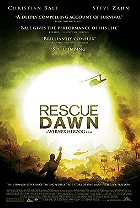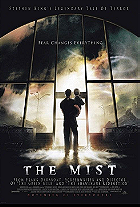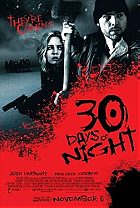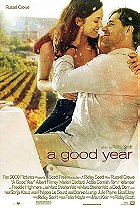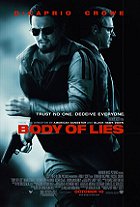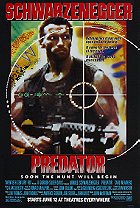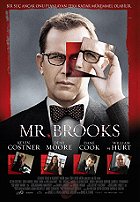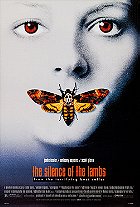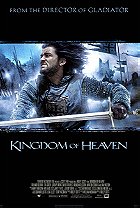Posted : 16 years, 7 months ago on 23 November 2008 01:36
(A review of
''I put no stock in religion. By the word religion I have seen the lunacy of fanatics of every denomination be called the will of god. I have seen too much religion in the eyes of too many murderers. Holiness is in right action, and courage on behalf of those who cannot defend themselves, and goodness. What god desires is here
[points to head]
and here
[points to heart]
and what you decide to do every day, you will be a good man - or not.''
Balian of Ibelin travels to Jerusalem during the crusades of the 12th century, and there he finds himself as the defender of the city and its people.
Orlando Bloom: Balian de Ibelin
The first cut of
Kingdom Of Heaven presented to the Fox executives was 186 minutes long. This had been taken from a 280 minute assembly edit (in the assembly, the actual siege itself was 45 minutes long). The main thing the executives questioned was the subplot involving Sibylla's son, as they felt this was Balian's story, and his story didn't need that particular plot line. Indeed, even during pre-production itself, executives had ordered writer William Monahan to write a version of the script without the Baldwin V plot, and Ridley Scott shot the film in such a way that the plot could be easily cut.

Several alternative endings were shot for the film. Orlando Bloom's preferred ending was as Balian rides past the pilgrims as they leave Jerusalem, he doesn't see Sibylla (Eva Green), but returns to France alone and resumes his life as a blacksmith. In another, version, he does see her, and they speak and ultimately take one another hand's, and the film ends with them walking away into the desert with the other pilgrims. In another version, he sees her, they talk, and then we cut to him arriving in France alone.
Balian of Ibelin: What is Jerusalem worth?
Saladin: Nothing.
[walks away]
Saladin: Everything!
The movie was not cut on film but was instead cut using a Digital Intermediate (the first time either Ridley Scott or editor Dody Dorn had ever used a DI). Originally, the plan was for only the siege to be cut via DI, but due to the level of complexity in the editing and due to the fact that so many things were changing so often, it was felt prudent to cut the film using a DI rather than the original negative.
After the team arrived in Morocco, an article appeared in the Daily Telegraph on January 20th, 2004 claiming that the film "panders to Osama Bin Laden". However, the writer of the article was quickly exposed as not having seen the screenplay. Subsequently however, a copy of the screenplay was leaked to the world's press, and provoked a strong reaction in terms of its depiction of Muslims. In an article on August 12, 2004 Professor Khaled Abu el-Fadl wrote, "I believe this movie teaches people to hate Muslims. There is a stereotype of the Muslim as constantly stupid, retarded, backward, unable to think in complex forms". This new sway in criticism greatly concerned King Mohammad VI, who came to fear for director Ridley Scott's safety, and as such, Mohammad provided Scott with four bodyguards.
After the pitching of this film, studio marketing executives took it to be an action-adventure hybrid rather than what Ridley Scott and William Monahan intended it to be: an historical epic examining religious conflict. 20th Century Fox promoted the film as an action movie with heavy elements of romance, and in they advertising campaign, they made much of the 'From the Director of Gladiator' slogan. When Scott presented the 194 minute version of the film to the studio, they balked at the length and studio head Tom Rothman ordered the film to be trimmed down to two hours, feeling people wouldn't go to see a three hour movie. Ultimately, Rothman's decision backfired as the film gained mixed reviews and under-performed at the US and UK box office.
The French village at the start and end of the film was constructed in Huesca, a small village in northern Spain. The castle seen in these scenes is a real crusade castle built in 1076, Castillo de Loarre. As he would do in Morocco when building Ibelin, production designer Arthur Max decided to use traditional building techniques and local craftsmen. In Galicia, he found craftsmen who still did slate roofs, thatching and stone dry-walling, and these men were employed to build the village set.
The chainmail for the film was made by the Weta Workshop, who also made the chainmail for
The Lord of the Rings trilogy.
Ridley Scott even offered the small role of Richard I to Russell Crowe, but due to scheduling conflicts, Crowe was unable to do it. The part eventually went to Iain Glen.
Both director Ridley Scott and writer William Monahan felt that the unnamed character played by David Thewlis was an embodiment of God, or at the very least, an angel on a mission from God. This is not at all apparent in the theatrical cut, but in the Director's Cut, there are two scenes which strongly hint at it - one where the character seemingly disappears after a conversation with Balian (Orlando Bloom), the other where he seems to 'resurrect' Balian after being attacked by three assassins.
The screenplay originally began with Balian (Orlando Bloom) awakening after the shipwreck. Writer William Monahan had wanted to begin the story with the death of Balian's wife in France, but had feared that that would make the screenplay too long. When Ridley Scott became interested in the project, he told Monahan not to worry about length and to begin the screenplay where he wanted to begin it.
The reason Jeremy Irons' character was renamed Tiberias (as opposed to his 'real' name, Raymond III of Tripoli) was because the studio felt audiences would get confused with two major characters both having names beginning with R (the other being Raynald de Chatillon (Brendan Gleeson), and so they ordered writer William Monahan to change the name of one of them.
After being cast as the Hospitaler in the film, David Thewlis visited the Hospitalers' Museum at St. John's Gate in London, near where he lives. Whilst there, he discovered that his flat was actually built on the remains of the old priory of the Hospitalers' headquarters.
After being cast in the role of Godfrey, actor Liam Neeson realized he knew nothing about the Crusades and began his research with The Complete Idiots Guide to the Crusades by Paul L. Williams, a book Neeson calls "extremely informative".
Two practical trebuchets were built for the film. The arms could pivot 56 feet and fire loads of 100 pounds some 400 meters. During filming, the arms of one of the trebuchet towers snapped due to the extreme temperature changes which dried the wood in the arm. The snapping of the arm can be seen in the behind the scenes footage on the 4-Disc Director's Cut DVD.
As he had done in Huesca, production designer Arthur Max used a real kasbah when constructing Ibelin, and simply built an 'extension' onto the existing structure. The set was built primarily by local craftsmen using traditional building techniques (eg mud bricks were made on-site from local earth and straw, doors and window frames were hand-carved from local palm trees, roofing tiles were hand-thrown and hand-fired).
Most exterior filming took place in Ouarzazate, Morocco, where Ridley Scott had also filmed
Gladiator(2000) and
Black Hawk Down(2001). A massive replica of Jerusalem was constructed in the desert; the set contained 28,000 square meters of wall and used 6000 tons of plaster. The front of the set was 1,200 feet long, and the walls were 56 feet tall.
Interesting Goofs
Factual errors: When the Muslims are praying near Jerusalem they are praying towards the setting sun, west, not towards Mecca which is to the south south east.
Factual errors: A few times during the movie, the Muslims are shown praying while the prayer call is being delivered. The prayer call precedes the prayer.
Continuity: At 2:08:09 surrender of Jerusalem, the scar to left and below Bloom's eye disappears.
Anachronisms: During the movie, flags from Castilla y Leon kingdom are shown several times. At that time Castilla and Leon were separate kingdoms. They became one in 1230.
Incorrectly regarded as goofs: Guy stabs Saladin's messenger in the throat with a small dagger. When the messenger falls, Guy is holding a bloody sword, rather than his dagger. This is corrected in the Director's cut, where Guy proceeds to behead the messenger with his sword.
Balian of Ibelin: What could a king ask of a man like me?
Godfrey of Ibelin: A better world than has ever been seen. A kingdom of conscience. A kingdom of heaven.

 Login
Login
 Home
Home 24 Lists
24 Lists 448 Reviews
448 Reviews Collections
Collections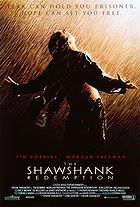
 0 comments,
0 comments, 